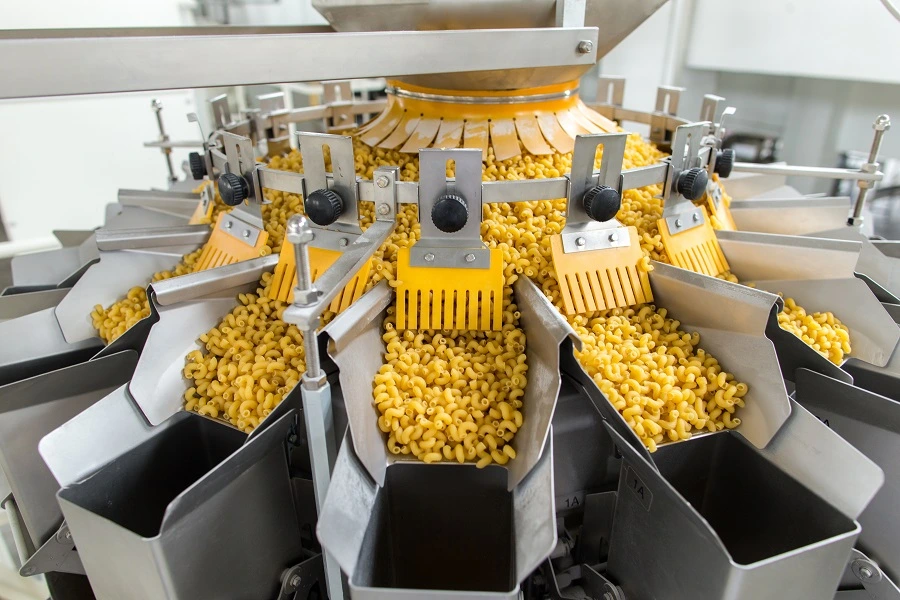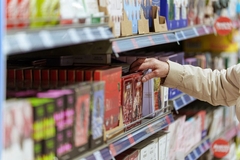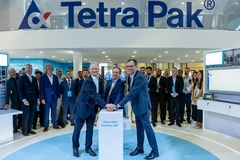
- Industry news
Industry news
- Category news
Category news
- Reports
- Key trends
- Multimedia
- Journal
- Events
- Suppliers
- Home
- Industry news
Industry news
- Category news
Category news
- Reports
- Key trends
- Multimedia
- Events
- Suppliers
Tetra Pak launches digitalization platform for “AI-ready” smart factories
Key takeaways
- Tetra Pak rolls out Factory OS, its automation and digitalization platform to improve production efficiency, reduce waste, and support sustainability goals in F&B manufacturing.
- The platform integrates real-time data across all equipment, providing a unified user interface to monitor materials, quality, and production.
- The tool aims to help manufacturers tackle cost pressures and prepare for AI-driven manufacturing.
Tetra Pak has unveiled an automation and digitalization platform aimed at making F&B factories “AI-ready.” The Tetra Pak Factory OS tool provides real-time insights and data integration for manufacturers to boost production efficiency, reduce waste, and support companies’ sustainability goals.
The platform’s launch coincides with the ongoing discussion around the importance of overcoming the F&B digital divide, as outdated systems hinder the industry’s potential. Manufacturers are increasingly focusing on bridging digital systems, while nearly 41% of consumers see potential in using AI to develop F&B products, suggests Innova Market Insights data.
Tetra Pak Factory OS standardizes data across all equipment for easy compatibility. It offers a unified user interface, real-time monitoring of materials, quality, and production, and insights through full factory integration.
“Today, F&B producers are under enormous pressure. They must deliver more with fewer resources — less water, less energy, less waste — all while maintaining quality and reducing costs,” says Sean Sims, VP, Automation & Solutions at Tetra Pak.
The portfolio transforms “complexity into clarity” and combines contextualized data — the foundation of effective AI adoption — with high-performing equipment automation.
Tetra Pak Factory OS gives F&B producers the confidence to act decisively in an increasingly volatile market, Sims emphasizes.
The company developed the “modular, open, and scalable” smart factory technologies in collaboration with Accenture. The initiative received support from Siemens, Rockwell Automation, and Inductive Automation, and Tetra Pak provided its expertise in food production to achieve “real impact for food producers.”
Overcoming digitalization challenges
A recent comparative study conducted by the Swiss firm revealed that highly automated beverage factories achieve 20% higher overall equipment effectiveness, 45% lower product waste, and 20% fewer packaging line stops compared to less automated facilities.
However, manufacturers struggle to adopt automation due to restricted knowledge of digitalization and difficulty in finding an all-round solution with industry expertise.
Tetra Pak Factory OS responds to these challenges by combining advanced technologies with thorough F&B know-how, which Tetra Pak claims will help producers “tackle cost pressures, meet sustainability goals, and prepare for AI-driven manufacturing.”
 Automated factories achieve 20% higher equipment effectiveness and 45% lower product waste, says a Tetra Pak study.
Automated factories achieve 20% higher equipment effectiveness and 45% lower product waste, says a Tetra Pak study.
Enhancing production efficiency
The Tetra Pak Factory OS portfolio includes a new data integration platform, backed by open technologies, powerful analytics, and industry standards, notes the company.
The tool connects equipment and systems throughout the factory, and converts fragmented data into a single, unified, real-time view. This feature enables F&B producers to deliver consistent product quality, enhance efficiency, reduce utility consumption, and lower total ownership costs.
Charles Brand, executive VP, Processing Solutions & Equipment at Tetra Pak, describes the platform as “more than a technology portfolio.”
“It embodies our vision for the future of food and beverage manufacturing. Designed for the next decade and beyond, it enables producers to build the factory of the future, where resilience, efficiency, and sustainability go hand in hand.”
The company will showcase the platform at the ongoing Gulfood Manufacturing event in Dubai, UAE, November 4-6.











